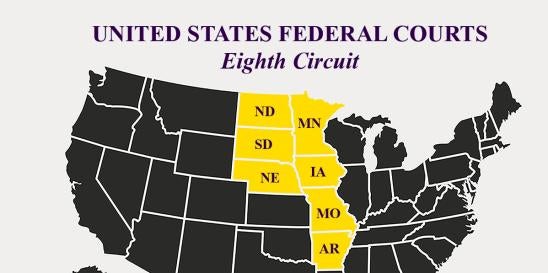As courts throughout the country wrestle with Article III standing in Session Replay Code cases alleging violations of wiretapping laws, consumer protection statutes and privacy torts, another federal court from the Eastern District of Missouri has joined those recently holding that a plaintiff must allege the sharing of some type of personal or sensitive information on the website in question in order to adequately alleged a concrete harm supporting Article III standing. Where the plaintiff failed to do so, the Court found Plaintiff failed adequately allege a concrete harm and dismissed her putative class action complaint for lack of standing in Adams v. PSP Group, LLC, No. 4:22-CV-1210 RLW, 2023 WL 5951784, — F. Supp.3d —- (E.D. Mo. September 13, 2023).
In PSP Group, Plaintiff Jill Adams filed suit against PSP Group, LLC (“Pet Supplies Plus”) alleging that Pet Supplies Plus unlawfully intercepts the electronic communications of its website visitors. As alleged in the complaint, Pet Supplies Plus directed third parties (not named as defendants in the suit) to embed on its website Session Replay Code, which is then deployed on visitor’s internet browsers. As previously explained in this post, Session Replay Code can track and record in real time a user’s website interactions, including mouse movements and clicks, keystrokes and other electronic communications, enabling website operators to record, save and replay website visitors’ interactions on a website. The Complaint specifies that Clarity (developed by Microsoft), is one of the Session Replay Codes used by Pet Supplies Plus.
Plaintiff’s allegations regarding her website interactions are sparse. She alleged to have visited www.petsuppliesplus.com on her mobile device while she was located in Missouri as follows:
During Plaintiff’s visit to www.petsuppliesplus.com and its subpages, Plaintiff visited the website to find where the nearest brick and mortar store was located. As a result of Plaintiff’s interactions (e.g., clicking buttons and links, etc.) with the website, Plaintiff became informed of the location of the nearest Pet Supplies Plus store. As a result, Plaintiff then purchased a product at the physical Pet Supplies Plus store identified on the Pet Supplies website.
Notably, Plaintiff did not allege making a purchase on the website. And while Plaintiff alleges that the contents of her communications with the website were intercepted by Session Replay Code and simultaneously transmitted to third-party Session Reply Providers without her knowledge, permission or consent, she does not specify what information she shared on the website, if any, including, for example, what information she typed or entered into the website’s data fields.
Plaintiff’s complaint asserted eleven counts against Pet Supplies Plus, including claims based on the alleged of violations of state and federal wiretapping laws, privacy torts and consumer protections statutes. Pet Supplies Plus moved to dismiss Plaintiff’s complaint for lack of standing, personal jurisdiction and for failure to state a claim. It also moved for the case to be transferred to the United State Western District of Washington pursuant to 28 U.S.C. § 1404. or alternatively, under the First-Filed rule. Alternatively, Pet Supplies Plus argued that the Court should transfer under the First Filed Rule because, only 48 days before filing this suit against Pet Supplies Plus, Plaintiff and her counsel filed a similar lawsuit involving the same software and nearly identical factual allegations against Zillow Group, Inc. in the Western District of Washington.
In its opinion, the Court first addressed and denied Pet Supplies Plus’s motion to have the case transferred.
Section 1404(a) provides that “[f]or the convenience of the parties and witnesses, in the interest of justice, a district court may transfer any civil action to any other district or division where it might have been brought.” The Court denied the transfer on this basis, finding this was not an action that “might have been brought” in the Western District of Washington. Pet Supplies Plus argued, as a key jurisdictional hook, that the Western District of Washington was home to Microsoft and the venue where Clarity — the Session Replay Code used on Defendant’s website — was presumably developed and deployed. But absent any allegations concerning the named parties’ connections to Washington, the “fact that Clarity, a Session Replay Code Defendant used on its website, was developed by a Washington corporation in Washington, without more does not confer venue in the Western District of Washington.” 2023 WL 5951784 at *4.
Pet Supplies Plus’s argument that transfer was proper based on the First-Filed Rule fared no better. While the facts and theories of recovery asserted in Plaintiff’s lawsuit against Zillow in the Western District of Washington were similar to those asserted against Pet Supplies Plus in Missouri, the Court determined that Plaintiff’s lawsuit against Zillow as not parallel to the present case. The Court noted that Zillow and Pet Supplies Plus “are separate companies running two different websites, and there is no commonality in ownership or otherwise.” Id. Nothing on the record indicated that a determination in one action would have an effect on the other action, particularly as the suits involved separate conduct by two different defendants. Plaintiff’s action against Pet Supplies Plus was not found duplicative of the Zillow lawsuit and the Court found that the First-Filed Rule did not apply.
The Court then turned to address Pet Supplies Plus’s motion to dismiss, starting its assessment with the threshold issue of standing. Pet Supplies Plus argued that Plaintiff lacked Article III standing to bring her claims because she failed to allege that she “suffered an invasion of a legal protected interest” that is “concrete and particularized” and “actual or imminent, not conjectural or hypothetical” as required by Spokeo, Inc. v. Robins, 578 U.S. 330, 338, 136 S. Ct. 1540 (2016). Plaintiff did not assert she suffered a tangible injury, such as physical injury or money damages, but rather argued that she suffered harms from Defendant’s violations of wiretapping statutes, which have a close relationship to harms traditionally recognized as providing the basis for invasion of privacy torts. Plaintiff also argued that she had alleged a concrete harm because she pleaded the state common law claim of intrusion upon seclusion. She argued that Defendant’s “violations of wiretapping statutes constitute concrete privacy harms,” which subject Defendant to liability and, therefore, she need not allege or demonstrate further harm to establish standing. Id. at *6
The Court found Plaintiff’s argument contrary to established Supreme Court precedent, which “has rejected the proposition that ‘a plaintiff automatically satisfies the injury-in-fact requirement whenever a statute grants a person a statutory right and purports to authorize that person to sue to vindicate that right.’” Id., citing TransUnion LLC v. Ramirez, — U.S. —, 141 S. Ct. 2190 (2021) (quoting Spokeo, 578 U.S. at 341, 136 S. Ct. 1540). In assessing standing, the Court framed the question as one of “whether Plaintiff adequately alleges facts showing a harm that is closely related to the harm that forms the basis of the tort of intrusion upon seclusion.” Id.
Those facts were absent from the Complaint. Plaintiff alleged that she visited Defendants’ website and that as a result of her interactions with the website, she became informed of the location of the nearest Pet Supplies Plus, which she used to physically visit a retail store and make a product purchase. Though she alleges that her website interactions were captured by the Session Replay Code that was operative on the website, she failed to allege what specific information, if any, she provided while visiting the website.
The Court found Plaintiff’s alleged harm was not closely related to the harm upon which the tort of intrusion of seclusion – or any invasion of privacy tort for that matter – is based because Plaintiff had not alleged that Pet Supplies Plus intercepted her private communications or personal information. Intrusion upon seclusion involves obtaining or intercepting private, personal communications or information about a person in a matter that is highly offensive or unreasonable. In the case at hand, Plaintiff failed to allege that she shared any sensitive, personal or confidential information while visiting Defendant’s website. Absent specific allegations that Plaintiff shared any personal information, plaintiff fell short of identifying a harm to her privacy interest. Because this harm was central to all claims asserted against Pet Supplies Plus, the Court found Plaintiff lacked standing and dismissed Plaintiff’s claim for lack of subject matter jurisdiction.




 i
i


